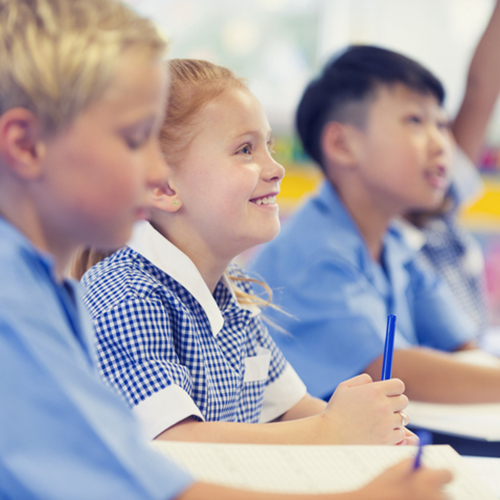
Assigning chores to children equally, giving them unsupervised freedom outdoors, and providing good career role models would help address workplace gender inequality, according to University of Queensland research.
The Hands Up for Gender Equality study, launched by the Australian Institute for Business and Economics Centre for Gender Equality in the Workplace, explores how gender impacts self-confidence and career intentions in teenagers.
Centre Director and UQ Business School researcher Dr Terry Fitzsimmons said the study filled a large gap in the knowledge required to address workplace gender inequality, starting with the education of young people.
“There have been few examinations into whether boys and girls actually differ in self-confidence, and what experiences, activities and decisions impact on levels of self-confidence in adolescents, which is a marker for future career success,” Dr Fitzsimmons said.
“We set out to comprehensively understand what factors contribute most to developing a young person’s self-confidence and shaping their career preferences, how these differ for girls and boys, and how they change in high school.
“By understanding these important factors and their levels of influence, we can help schools and parents more effectively develop self-confidence, career intention and leadership capacity in young people.”
The study surveyed more than 10,000 students aged 12-17 years from single-sex schools across South East Queensland.
Students were asked about leadership and travel experiences, self-confidence levels, types of and time spent on chores, part-time work and study commitments, and career motivations and preferences including engagement with science, technology and maths subjects.
 Dr Fitzsimmons said he hoped the insights and recommendations from the study would positively influence family routines, school and government policies.
Dr Fitzsimmons said he hoped the insights and recommendations from the study would positively influence family routines, school and government policies.
“Key recommendations include urging parents to assign and pay chores equally, encouraging schools to prioritise excursions to help develop self-confidence, and urging industries traditionally dominated by one gender to send diverse role models to schools to talk about careers,” he said.
“Correcting the gender imbalance in the workforce and creating a more equal and fair society is everyone’s responsibility and it’s important we start now.
“We hope our research will empower caregivers and teachers to inspire confidence and purpose in young adults, especially when they are deciding on their subjects and careers, which can be as early as 13 years of age.
“We also hope parents adopt these practical measures in their own homes and practices, to ensure our future leaders consider all careers equally, and have a solid understanding of fairness and equality in all aspects of their lives.”
The study was conducted in cooperation with the Alliance of Girls’ Schools Australasia, the Australian Gender Equality Council, JIIG-CAL Australia and 13 single-sex schools throughout South East Queensland.
Media: Dr Terry Fitzsimmons, t.fitzsimmons@business.uq.edu.au, +61 404 093 655; Gemma Ward, media@bel.uq.edu.au, +61 7 3346 0700, +61 439 651 107.



